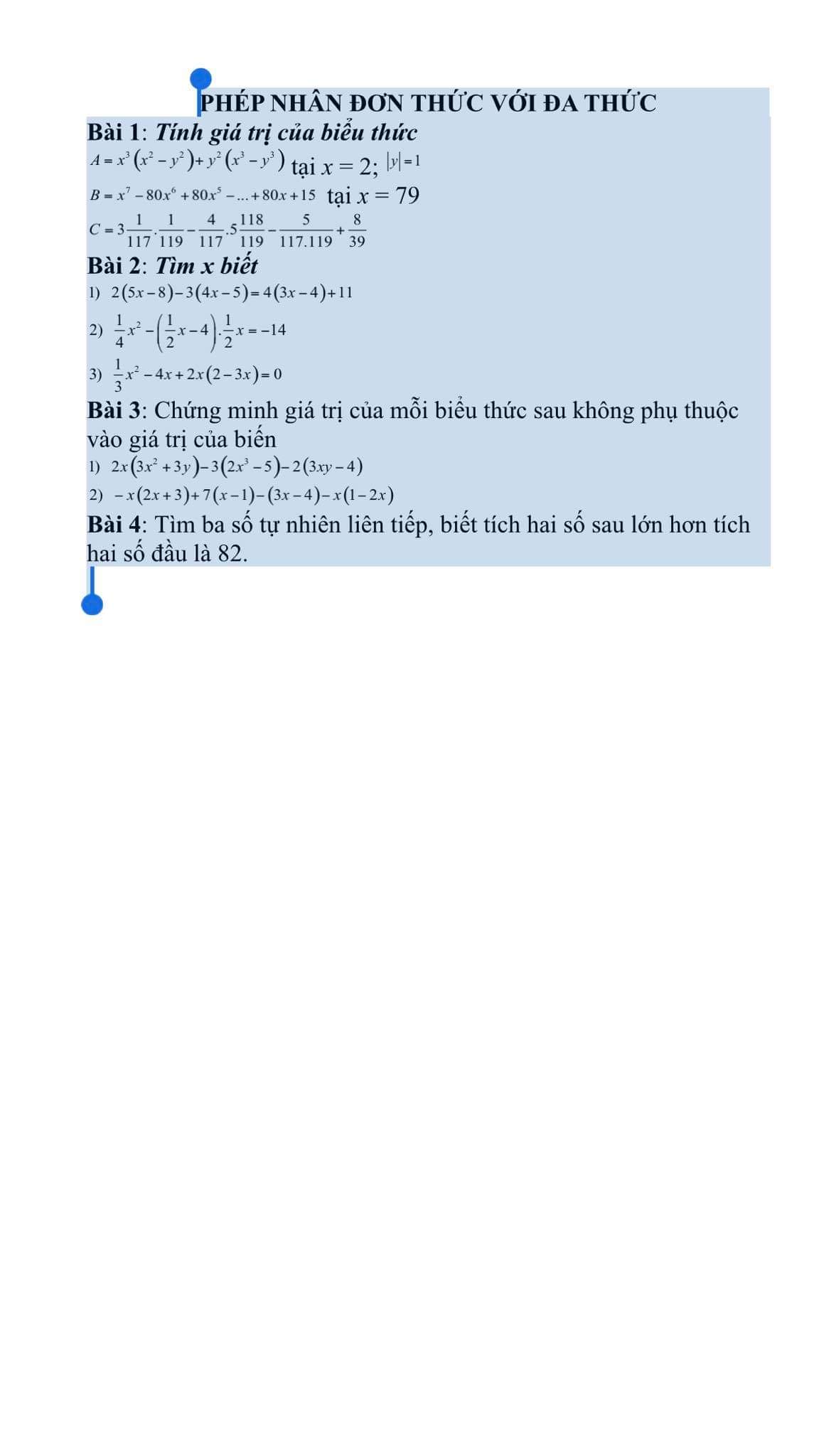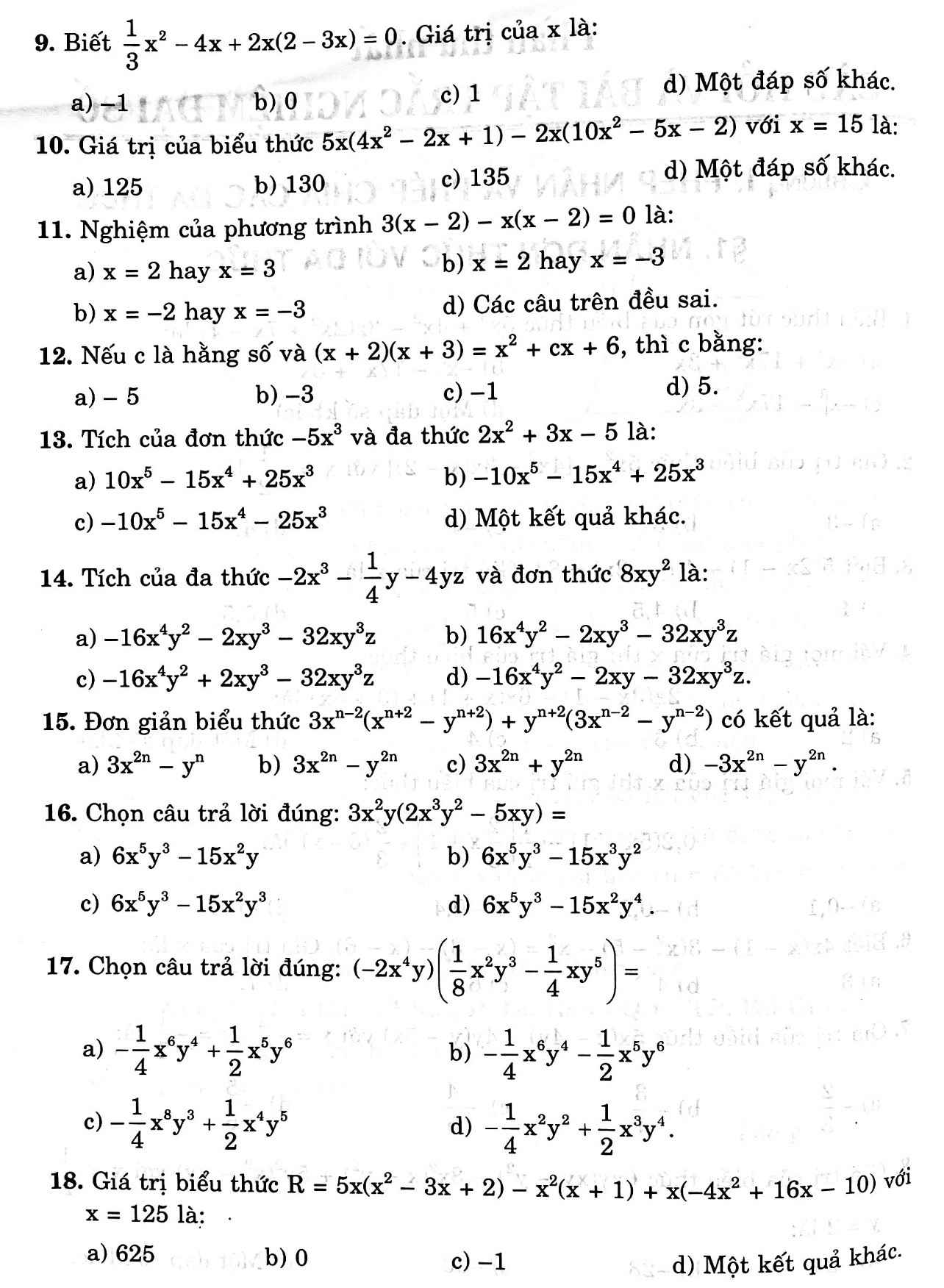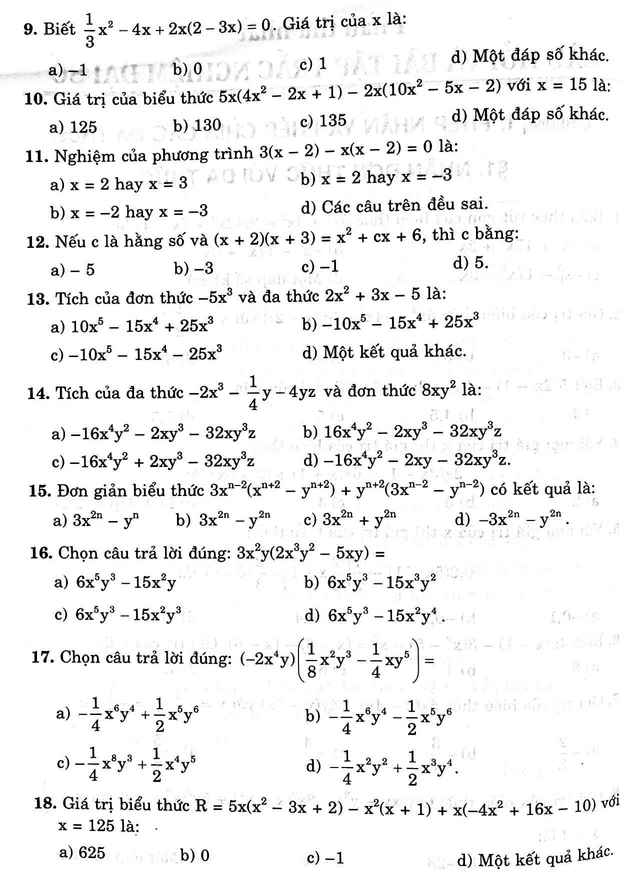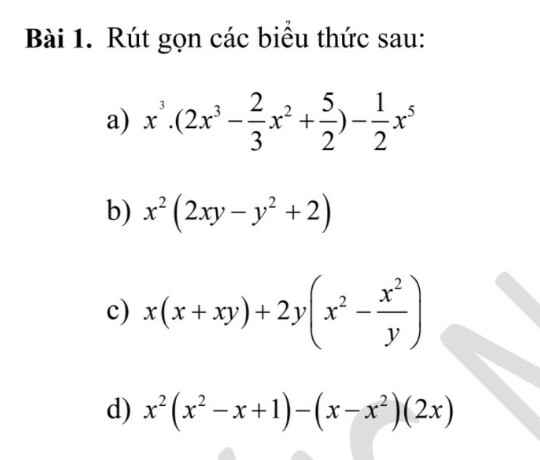Bài 2:
a) Ta có: \(2\left(5x-8\right)-3\left(4x-5\right)=4\left(3x-4\right)+11\)
\(\Leftrightarrow10x-16-12x+15=12x-16+11\)
\(\Leftrightarrow-2x+1-12x+5=0\)
\(\Leftrightarrow-14x=-6\)
hay \(x=\dfrac{3}{7}\)
b) Ta có: \(\dfrac{1}{4}x^2-\left(\dfrac{1}{2}x-4\right)\cdot\dfrac{1}{2}x=-14\)
\(\Leftrightarrow\dfrac{1}{4}x^2-\dfrac{1}{4}x^2+2x=-14\)
\(\Leftrightarrow2x=-14\)
hay x=-7
c) Ta có: \(\dfrac{1}{3}x^2-4x+2x\left(2-3x\right)=0\)
\(\Leftrightarrow\dfrac{1}{3}x^2-4x+4x-6x^2=0\)
\(\Leftrightarrow\dfrac{-17}{3}x^2=0\)
\(\Leftrightarrow x^2=0\)
hay x=0
Bài 3:
a) Ta có: \(2x\left(3x^2+3y\right)-3\left(2x^3-5\right)-2\left(3xy-4\right)\)
\(=6x^3+6xy-6x^3+15-6xy+8\)
=23
b) Ta có: \(-x\left(2x+3\right)+7\left(x-1\right)-\left(3x-4\right)-x\left(1-2x\right)\)
\(=-2x^2-3x+7x-7-3x+4-x+2x^2\)
\(=-3\)
Bài 4:
Gọi ba số tự nhiên cần tìm lần lượt là x;x+1;x+2
Theo đề, ta có phương trình:
\(\left(x+1\right)\left(x+2\right)-x\left(x+1\right)=82\)
\(\Leftrightarrow x^2+3x+2-x^2-x=82\)
\(\Leftrightarrow2x=80\)
hay x=40
Vậy: Ba số cần tìm là 40;41;42
















